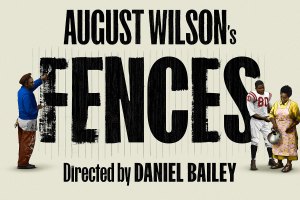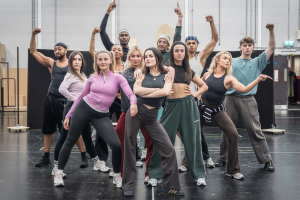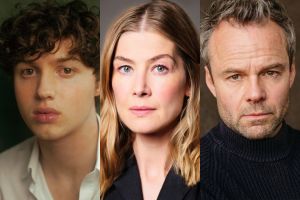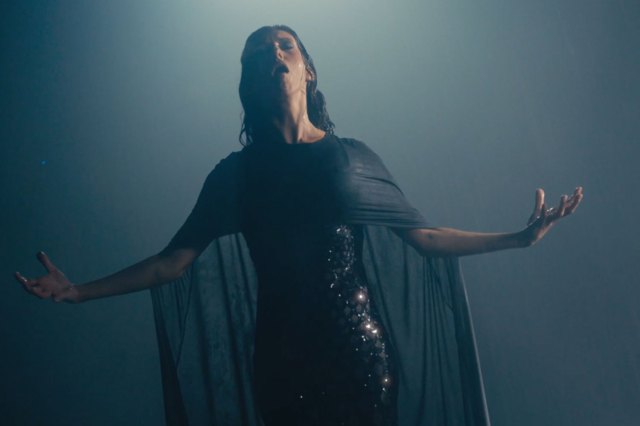Brief Encounter With … The Orange Tree’s Sam Walters
Sam Walters is the country’s longest-serving artistic director, having been with the Orange Tree in Richmond since it was established in 1971.
You’re now the UK’s longest serving artistic director
Well so someone suggested to me, and we’re quite happy to say this and see if someone comes forward to challenge it – and if they do, jolly good luck to them, I shall concede instantly.
When you first started at the Orange Tree did you ever imagine you’d still be here 40 years on?
No, one didn’t know at all. I mean a lot of things happened around the end of the 60s, beginning of the 70s. Although I was the driving force it didn’t actually become my full time job until 1973. We had no idea when we started whether we’d last six months, never mind six years or sixteen years. But it was a good place to start a theatre.
The venue we’re in now was a school across the road from the pub where we started. It closed in 1974 and a local architect said to me “there’ll be a development on that site, and the council can ask the developers for something on the site for the community”. So the idea that there might be a theatre here was mooted as early as 1973, but it took forever and there were two developers involved and the site lay fallow for a long time. It wasn’t until 1988 that it started to happen and then the new theatre finally opened in 1991 – so we had 20 years in the pub, when the new theatre was hanging like a carrot over the road, and now we’ve had 20 years here.
I’ve stayed, which is not what you’re supposed to do in theatre. You’re supposed to live out of a suitcase and be a vagabond. When I was a young actor you joined a theatre company for a few years and then moved on. You weren’t supposed to put down roots because you went where the work was. So making my work into a regular job was exactly what I wasn’t supposed to do.
Did you have a particular artistic vision in those early days?
No we didn’t really. Somebody who had taught me at drama school was at that time running the Hampstead Theatre, which was I suppose the only small theatre outside central London that existed. There was no Almeida, there was no Donmar, the Bush started just after us, the Tricycle hadn’t yet been built – so I suppose we had the idea of creating for Richmond a version of what they had in Hampstead.
The Arts Council actually had a policy in those days of supporting second productions of new plays, so we did quite a few of those – there seemed to be more short plays around then, which were ideal for our lunchtime slots. So the reviving of plays is something that developed and grew slowly for one reason or another, much like the decision to present work in the round. And we weren’t particularly politically motivated, unlike a lot of the theatres that sprang up in the 50s and 60s, we were just a group of professionals eager to share our work.
How did your association with Vaclav Havel come about?
Pure chance, really. I did have on my bookcase a Penguin volume of eastern European plays which included his play The Memorandum , which I read, and then somebody drew my attention to an edition of Index on Censorship, at the back of which was a short play by Havel, Audience. I liked the play, chased up who had the rights and discovered that we could do it. So we scheduled to do Audience and Private View in early 1977 and, just as we were about to go into rehearsals, Charter 77 hit the headlines – of which Havel was a driving force – and he ended up on front pages everywhere. So we suddenly found we were about to stage work by the most well-known playwright in the world.
This got us really interested in him and in what was happening in Czechoslovakia and we soon followed it up by staging The Memorandum. We also prepared a documentary about Britain’s relationship with Czechoslovakia, got a petition going and we marched on the Czech embassy. I remember we plastered the theatre walls with newspaper cuttings about what was going on, and just generally got involved and stayed involved.
We were delighted in 2007 when the Czech Embassy asked if we would host a celebration of Charter 77 and Havel came, which we didn’t expect at all. And then we heard there was a new play – the first he’d written since 1989 – about a man leaving office, a mixture of King Lear and The Cherry Orchard. That was Leaving, and we were able to do the first production outside Prague, in 2008.
Tell me about The Conspirators
The Conspirators was the first play he wrote after the 1968 Russian invasion of Czechoslovakia. The Prague spring happened between ’63 and ’68 when things seemed to be moving in the right direction. But then the Russians decided enough was enough and the tanks rolled in, Dubcek was ousted and Havel became a banned playwright.
The Conspirators was the first play he wrote as a banned playwright and it languished. But a woman called Carol Rocamora translated it in about 2004. I read it at the time and it suddenly came back to me when the recent Arab spring was happening, because it’s set in a country where there’s been a revolution and there’s now a fragile democracy. There’s a concern that the democracy will crumble and then there a rumours that the ousted dictator isn’t actually dead – which has very obvious resonances with Osama Bin Laden and Gaddafi.
So the play seemed to be very apt, examining what happens in the wake of revolutions and asking where the new powerbase will be. It was always apt for us in that it’s our 40th anniversary and he’s the playwright with whom we’re most associated. Also, and I didn’t spot this initially, it was written in 1971 – the year we started the Orange Tree.
What else can you tell us about the rest of season?
Well the second play is a new play by David Lewis – it’s the sixth play of his that we’ve done. One of the advantages of an artistic director who hangs around is that you can develop relationships that last a number of years, and David’s an example. It’s called How to be Happy and he’s actually directing it himself, which is very exciting.
Then we’re going back to another important figure for the Orange Tree, James Saunders, and a play called Next Time I’ll Sing to You, directed by Anthony Clark (returning to the venue for the first time in 25 years). The play was very influential on me personally. It was done first in 1963 and it’s a very interesting piece, quite ground-breaking in its day, though a lot of young people I mention it to haven’t heard of it.
For Christmas we’re doing The Charity That Began At Home by St John Hankin, another writer we have a long association with, and then next year we’ll be doing a new play by Martin Crimp, which is very exciting for us. And finally we’ll be reviving a play by Alan Monkhouse called The Concrete Hero about pacifism in the First World War which was rather overshadowed when it first appeared by Journey’s End, but I think is a really interesting, and very different, work. It’s always very satisfying to, as it were, dig up the bones of a writer you feel has been unjustly neglected.
So what does the future hold for you and the Orange Tree?
For me personally I think it’s time to think of stopping, and therefore I’m thinking of moving towards easing myself away. There’s this anniversary to be got through first and then perhaps what happens next will involve me moving away and letting someone else take charge. The world changes and it’s changing very fast now, so it’s probably a good thing to get rid of an old man who doesn’t even have a computer at home. So yes, the next 40 years will be in someone else’s hands. It will feel rather like letting my children go.
– Sam Walters was speaking to Theo Bosanquet












